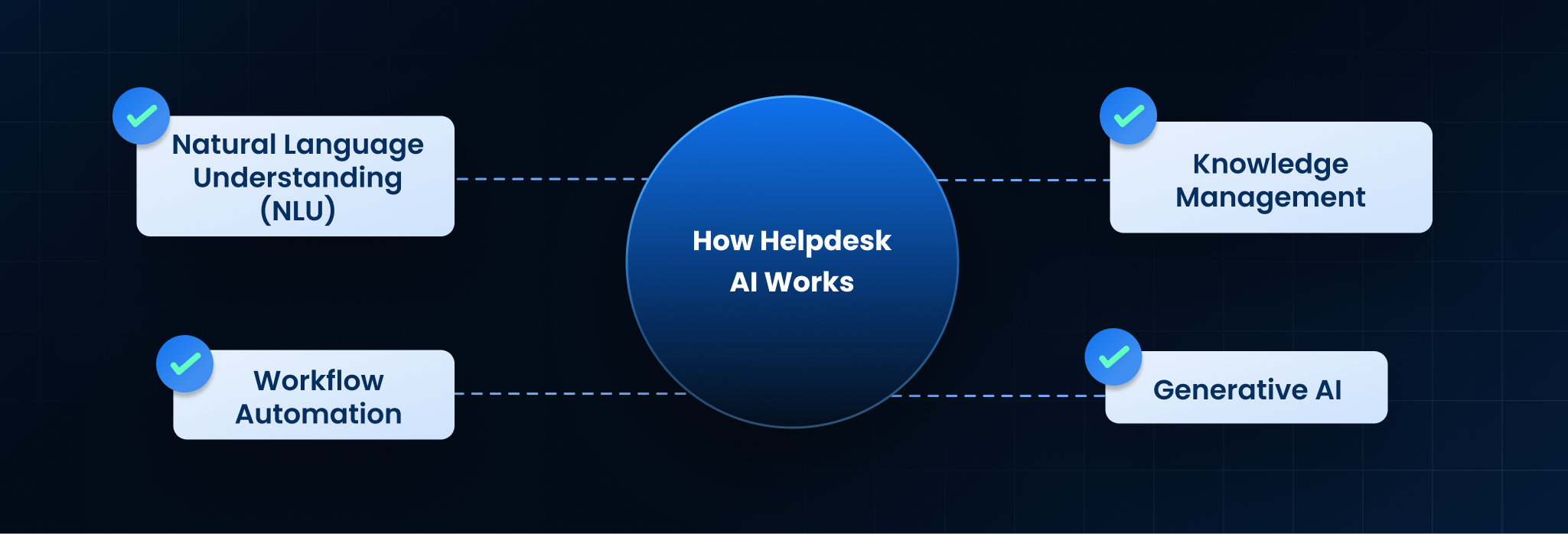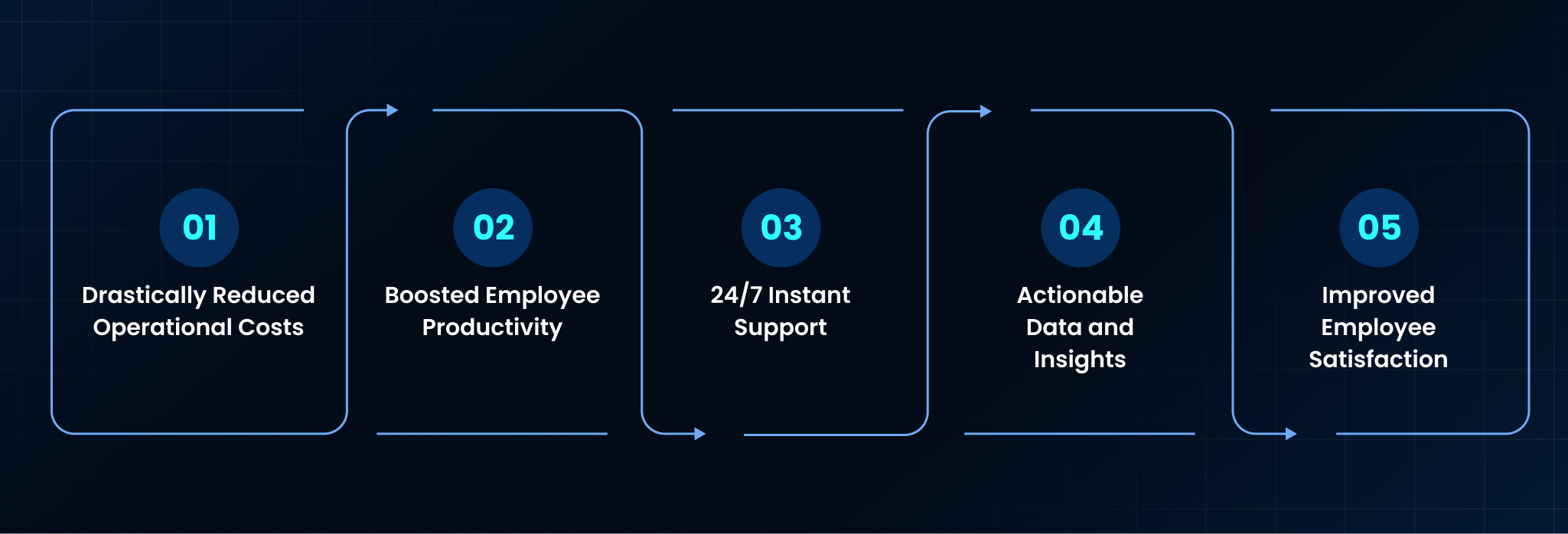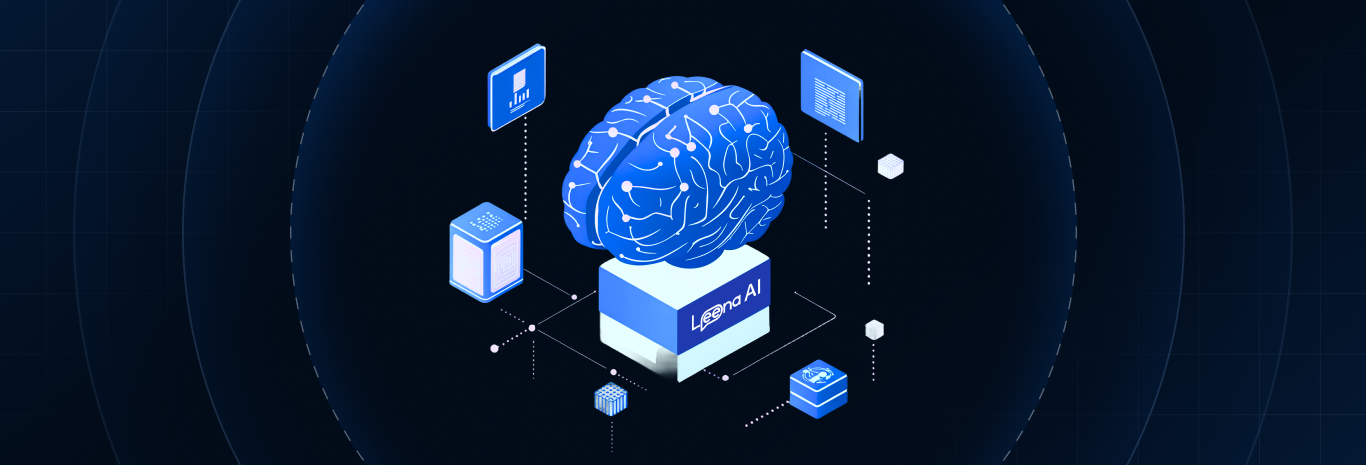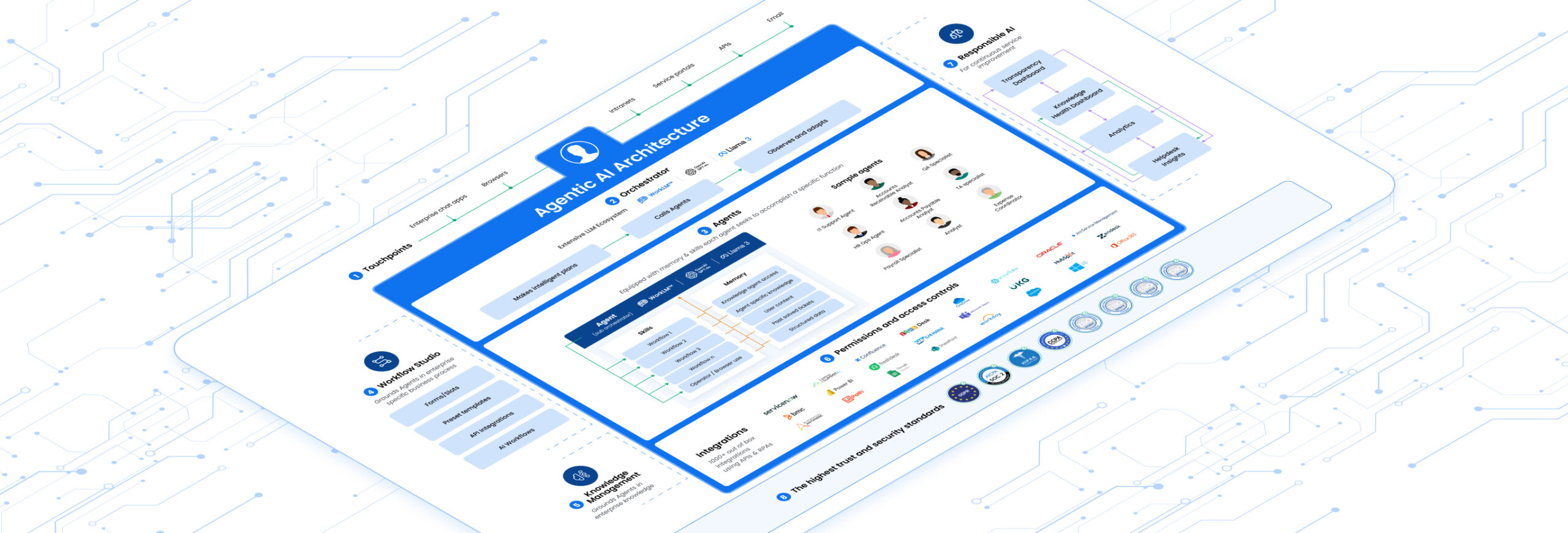Introduction
In today’s competitive landscape, the quality of your internal support directly impacts employee productivity and, ultimately, your bottom line. As a technology leader managing complex ticketing systems, you know the drain that inefficient processes can have on both your IT teams and the employees they serve. This is where Helpdesk AI emerges not just as a tool, but as a strategic partner, fundamentally reshaping how support is delivered across your enterprise.
Looking ahead, the conversation has evolved far beyond simple chatbots. We’re now entering an era of intelligent, autonomous systems that anticipate needs, resolve complex issues, and create a seamless support experience. This guide will explore the strategic power of modern Helpdesk AI and why it’s a critical investment for forward-thinking organizations.
What is Helpdesk AI?
At its core, Helpdesk AI is the use of artificial intelligence to automate, streamline, and intelligently manage internal employee support. Think of it less as a simple Q&A bot and more as a brilliant, always-on digital team member. It integrates with your existing systems, like ServiceNow, Jira, or Workday, to provide instant, accurate, and actionable support to employees, whether their issue is in IT, HR, or Finance.
Essentially, it’s the brain that makes your support operations self-sufficient. Instead of an employee filing a ticket for a common IT issue and waiting hours for a response, they can interact with a Helpdesk AI platform through a familiar interface like Slack or Microsoft Teams and get their problem solved in seconds. This isn’t just about deflecting tickets; it’s about resolving them instantly.
How Helpdesk AI Works
The magic behind a modern Helpdesk AI platform lies in a symphony of advanced technologies working together. While you don’t need to be in the weeds, understanding the core components helps appreciate its power.
- Natural Language Understanding (NLU): This allows the AI to understand what employees are asking in their own words, slang and typos included. It grasps the intent behind a phrase like, “My laptop’s acting weird and I can’t get into the sales app,” identifying both a hardware issue and an access problem.
- Workflow Automation: Once the AI understands the request, it triggers automated, pre-defined workflows to resolve it. For a password reset, this involves verifying the user’s identity and executing the reset command in your identity management system.
- Knowledge Management: The AI constantly learns from every interaction, as well as from your internal knowledge bases (like Confluence or SharePoint). This ensures its answers are always accurate and up-to-date.
- Generative AI: The latest Helpdesk AI systems use generative AI to do more than just follow scripts. They can synthesize information from multiple sources to provide comprehensive answers, summarize complex ticket histories for human agents, and even suggest solutions to novel problems.
Together, these components create a system that doesn’t just respond, but understands, acts, and learns.

Key Benefits of Helpdesk AI for Enterprises
Adopting a sophisticated Helpdesk AI platform delivers tangible, strategic benefits that resonate at the executive level. It’s an investment in efficiency that pays dividends across the organization.
-
Drastically Reduced Operational Costs: By automating the resolution of up to 80% of common tickets, you free up your skilled support staff to focus on high-impact, strategic projects instead of repetitive tasks.
-
Boosted Employee Productivity: Instant resolutions mean employees aren’t stuck waiting for help. They get their issues fixed in moments and can get back to their actual jobs, driving overall business productivity.
-
24/7 Instant Support: Your global workforce operates around the clock, and so should your support. A Helpdesk AI system is always available, providing consistent service across all time zones without extra staffing costs.
-
Actionable Data and Insights: These platforms provide a wealth of data on recurring issues and support trends. This allows you to proactively identify systemic problems, like a buggy software update or a confusing business process, and fix them at the root.
-
Improved Employee Satisfaction: A fast, easy, and effective support experience is a major contributor to employee satisfaction and retention. Providing a consumer-grade internal support experience shows you value your employees’ time.

Common Use Cases of Helpdesk AI
The applications of Helpdesk AI span every support function within a large enterprise, seamlessly handling high-volume, repetitive requests.
- For IT Support:
- Password Resets & Account Lockouts: Instantly resolves one of the most common IT tickets.
- Software Access Requests: Manages the entire workflow, from request and approval to provisioning.
- Device Troubleshooting: Guides employees through common troubleshooting steps for laptops and mobile devices.
- VPN & Connectivity Issues: Diagnoses and resolves common network connection problems.
- For HR Support:
- Payroll & Benefits Questions: Provides instant, personalized answers to questions about pay stubs, 401(k) plans, and health benefits.
- Policy Inquiries: Acts as a searchable encyclopedia for all company policies.
- Time-Off Requests: Manages leave requests and updates balances in real-time.
- For Finance Support:
- Expense Report Status: Instantly provides the status of an employee’s expense submission.
- Invoice Processing Inquiries: Answers vendor questions about invoice status and payment timelines.
Challenges in Implementing Helpdesk AI
While the benefits are clear, a successful implementation requires a strategic approach. Technology leaders should be mindful of a few key challenges.
- Integration Complexity: The AI must seamlessly connect with your existing systems of record (like ticketing, HR, and identity management platforms). A platform with pre-built, robust integrations is crucial.
- Change Management: Employees are accustomed to traditional support channels. A clear communication and training plan is essential to drive adoption and ensure everyone understands how to use the new system.
- Data Security and Privacy: The platform will handle sensitive employee and company data. Therefore, choosing a vendor with enterprise-grade security, robust data governance, and compliance certifications is non-negotiable.
- Choosing the Right Solution: The market is full of options. The key is to look beyond simple chatbots and select a true Helpdesk AI platform built for the complexity and scale of a large enterprise.
How Leena AI Powers Helpdesk AI with Agentic Capabilities
This is where the next generation of Helpdesk AI truly shines. At Leena AI, we’re pioneering the use of Agentic AI, a more advanced form of artificial intelligence that doesn’t just follow pre-programmed workflows but can reason, make decisions, and execute complex, multi-step tasks autonomously.
Think of it as the difference between a simple calculator and a skilled financial analyst. A standard automation tool can perform a single task you tell it to do. An AI Agent, however, can understand a high-level goal and figure out the sequence of tasks required to achieve it.
For example, when a new employee joins your company, the process involves dozens of steps across IT, HR, and Finance. A standard Helpdesk AI might handle a few of these as separate requests. Leena AI’s Agentic AI can manage the entire end-to-end process from a single command:
-
It provisions their accounts in Active Directory and assigns the correct software licenses based on their role.
-
It enrolls them in the necessary HR systems for payroll and benefits.
-
It orders and configures their laptop and ensures it’s shipped to their location.
-
It schedules their onboarding meetings.
This is the power of a true AI Agent. It acts on your behalf to orchestrate complex processes, dramatically reducing manual effort and ensuring a flawless day-one experience for new hires. By leveraging this advanced form of Helpdesk AI, Leena AI delivers a level of automation and efficiency that was previously unimaginable.
Future of Helpdesk AI
The trajectory of Helpdesk AI is pointing towards a future that is fully autonomous, predictive, and deeply personalized. As we move further into 2025 and beyond, expect to see several key trends mature:
- Proactive and Predictive Support: The ultimate goal is to solve problems before they happen. Future Helpdesk AI will analyze system performance data to predict potential issues, like a server nearing capacity or a software license about to expire, and automatically resolve them without any human intervention. This is the shift from a “break-fix” model to a “predict-and-prevent” paradigm.
- Hyper-Personalization: The AI will understand each employee’s role, location, devices, and common software usage to provide a uniquely tailored support experience. It will anticipate their needs and proactively offer relevant tips and resources.
- The Evolving Role of Human Agents: With AI handling the vast majority of routine inquiries, your human support staff will be elevated to more strategic roles. They will become expert consultants for complex, multi-faceted issues, focus on improving the user experience, and even help train the AI, transforming the helpdesk from a cost center into a value-creation engine.
Frequently Asked Questions (FAQs)
How does Helpdesk AI integrate with our existing ticketing system like ServiceNow?
A robust Helpdesk AI platform like Leena AI uses pre-built connectors and APIs to deeply integrate with major ticketing systems. It reads and writes data in real-time, meaning tickets can be created, updated, and resolved directly from the AI interface, with everything perfectly synced in your system of record.
Is implementing a new Helpdesk AI platform a long and difficult process?
Not anymore. Modern, cloud-based solutions are designed for rapid deployment. With a clear plan and a dedicated partner, initial implementation can be completed in a matter of weeks, not months, allowing you to see value very quickly.
How does Helpdesk AI ensure the security of our sensitive employee data?
Enterprise-grade Helpdesk AI platforms are built with security at their core. This includes compliance with standards like SOC 2 and ISO 27001, end-to-end data encryption, and robust role-based access controls to ensure that data is always protected and handled responsibly.
Can a Helpdesk AI system understand the unique jargon and processes of our company?
Yes. A key part of the implementation process involves training the AI on your company’s specific terminology, knowledge base articles, and workflows. The system is designed to be highly configurable to reflect your unique business context.
What kind of return on investment can we expect from a Helpdesk AI?
The ROI is multi-faceted. It includes hard savings from reduced ticket resolution costs and lower support headcount needs, as well as significant soft benefits from increased employee productivity, higher employee satisfaction, and the ability for your IT and support teams to focus on more strategic initiatives.













